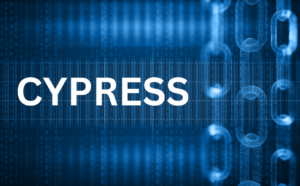Artificial Intelligence (AI) has significantly transformed various industries, revolutionizing processes and enhancing efficiency. Software testing is one area where AI has proven particularly beneficial, reshaping traditional testing practices and achieving results previously thought unattainable. This article explores the role of AI in software testing, its current applications, and its potential future impact.
The Evolution of Software Testing
In the past, software testing was a manual process focused on ensuring the application worked as expected and met all requirements. While thorough, manual testing was time-consuming and prone to human error. One of the main challenges in automated testing, especially in SAP systems, involved regression testing. Fortunately, automation tools have improved this aspect, allowing for the quick and reliable execution of complex test scenarios. However, automated testing still has its limitations, such as reliance on predefined scripts, which make it difficult to adapt to new scenarios or changes in the software environment.
How AI Enhances Software Testing
AI offers a fresh approach to software testing by integrating machine learning, natural language processing, and other technologies that go beyond traditional AI applications. These tools can process large data sets, making intelligent decisions based on patterns and analysis. Here are several ways AI enhances software testing:
- Test Case Generation and Optimization AI can automatically generate and optimize test cases, significantly improving the depth and coverage of testing. By analyzing the software code and user requirements, AI creates comprehensive test scenarios, saving time and improving test quality.
- AI for Predicting Faults AI can predict areas of the software likely to contain defects by learning from historical data and patterns. This enables testers to prioritize their focus, improving testing efficiency and ensuring resources are better allocated.
- Smart Test Maintenance AI tools can dynamically update test cases based on software changes, reducing the maintenance burden as the software evolves. This adaptability ensures that tests remain relevant and effective.
- Improved Defect Tracking and Management AI can classify and prioritize defects based on severity and impact, helping teams quickly address critical issues. Additionally, AI can assist in identifying the root causes of defects, speeding up the debugging process.
- Performance Testing and Monitoring AI can simulate user behavior and analyze real-time performance data to identify bottlenecks and recommend optimizations, ensuring the software performs well under different conditions.
Applications of AI in Software Testing
AI’s role spans various stages of the software development lifecycle, with key applications including:
- Unit Testing AI can identify critical paths in code and automatically generate unit tests for edge cases, leading to more thorough testing and higher software reliability.
- Regression Testing AI tools can automatically identify the impact of changes and select appropriate test cases, improving the efficiency and accuracy of regression testing.
- UI Testing AI can simulate user interactions to test user interfaces more effectively, enabling faster and more accurate UI testing.
- Security Testing AI can enhance security testing by detecting vulnerabilities, potential threats, and anomalous behaviors, allowing teams to address security issues proactively.
The Future of AI in Software Testing
AI adoption in software testing is still in its early stages, but its potential is vast. As AI technologies continue to mature, they will enable more sophisticated testing solutions. Some emerging trends in AI-driven software testing include:
- AI-Driven Continuous Testing AI can automate test execution, analysis, and reporting, providing continuous quality assurance in fast-paced development environments like Agile and DevOps.
- Cognitive Automation Cognitive automation combines AI with human-like reasoning, helping interpret complex requirements, design test cases, and make strategic testing decisions.
- Integration with DevOps and CI/CD Pipelines AI-driven tools can seamlessly integrate with DevOps and Continuous Integration/Continuous Deployment (CI/CD) pipelines, enabling automated testing at every stage of the development process and enhancing overall quality.
Testers Supported by AI
Rather than replacing human testers, AI assists them by automating repetitive tasks, freeing up testers to focus on more complex and creative aspects of testing. The collaboration between human testers and AI tools can lead to faster, more efficient testing.
Challenges and Considerations
Despite its advantages, AI in software testing presents some challenges:
- Data Quality: AI requires high-quality, relevant data to be effective. Poor or unrepresentative data can result in inaccurate models and poor performance.
- Skill and Expertise: Organizations must invest in training their workforce to leverage AI tools effectively.
- Integration with Existing Tools: Seamless integration of AI-driven tools with existing testing frameworks can be challenging.
- Cost and Investment: While AI tools offer long-term benefits, the initial cost of implementation can be high, requiring careful planning to ensure a positive cost-benefit ratio.
Conclusion
AI is rapidly transforming software testing, offering significant improvements in efficiency, accuracy, and scalability. AI-driven tools help automate repetitive tasks, predict potential issues, and improve test case design, leading to smarter, more efficient testing. As AI technologies continue to evolve, the software testing industry will likely see even more advanced and intelligent solutions, allowing organizations to deliver higher-quality software faster and at a lower cost. However, to fully realize the potential of AI in testing, organizations must address challenges related to data, expertise, and integration. With proper application, AI can usher in a new era of software quality.





